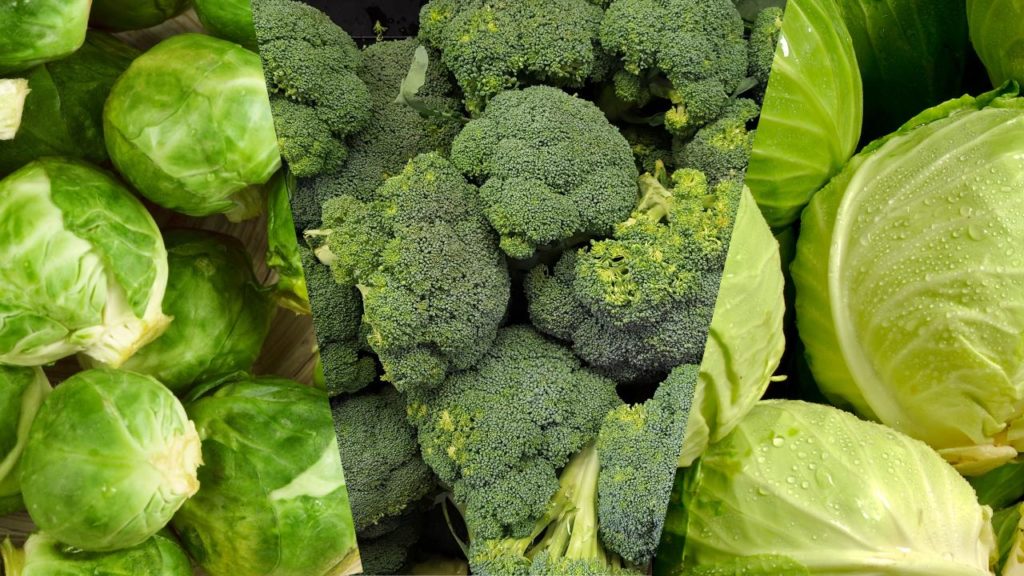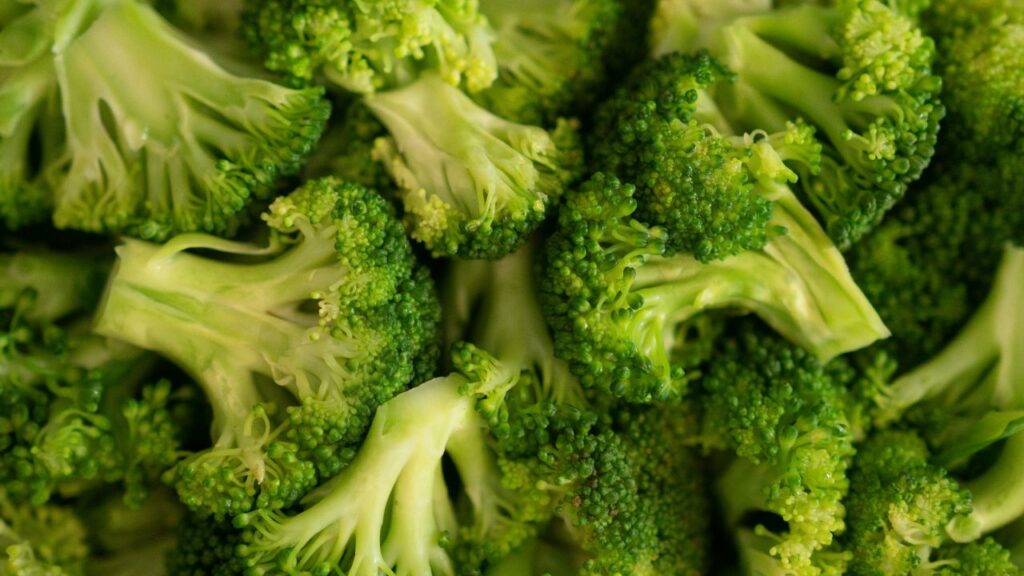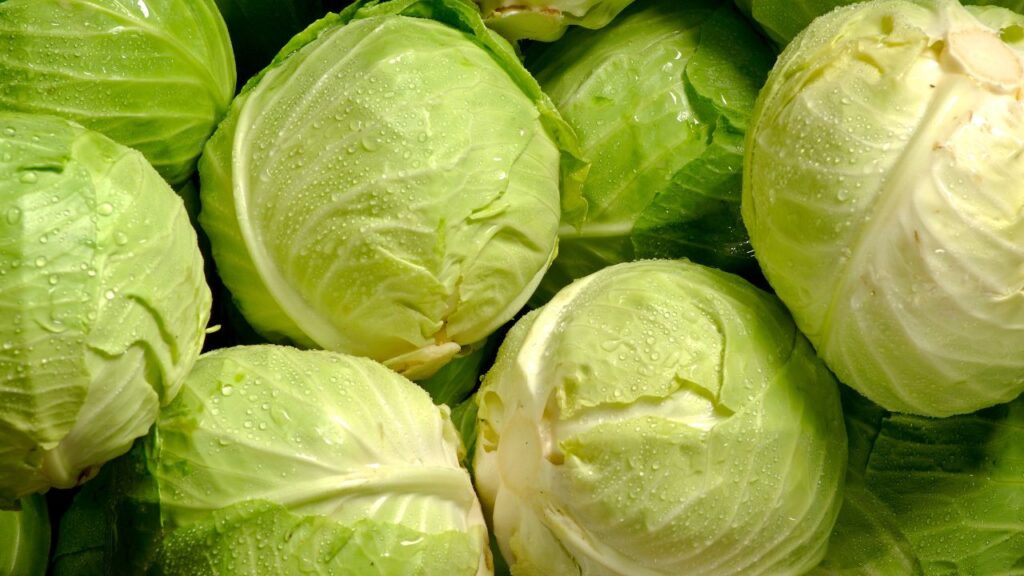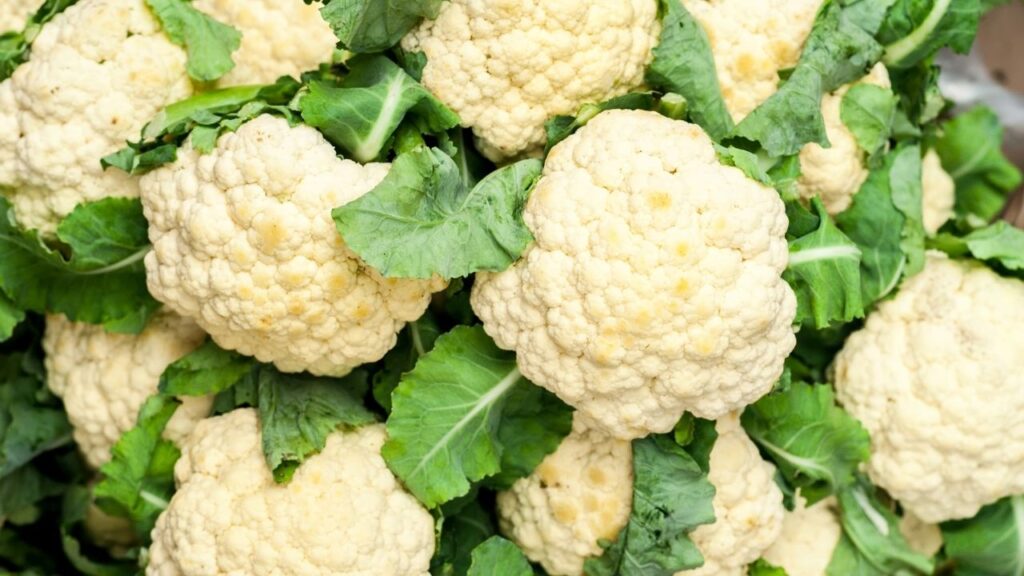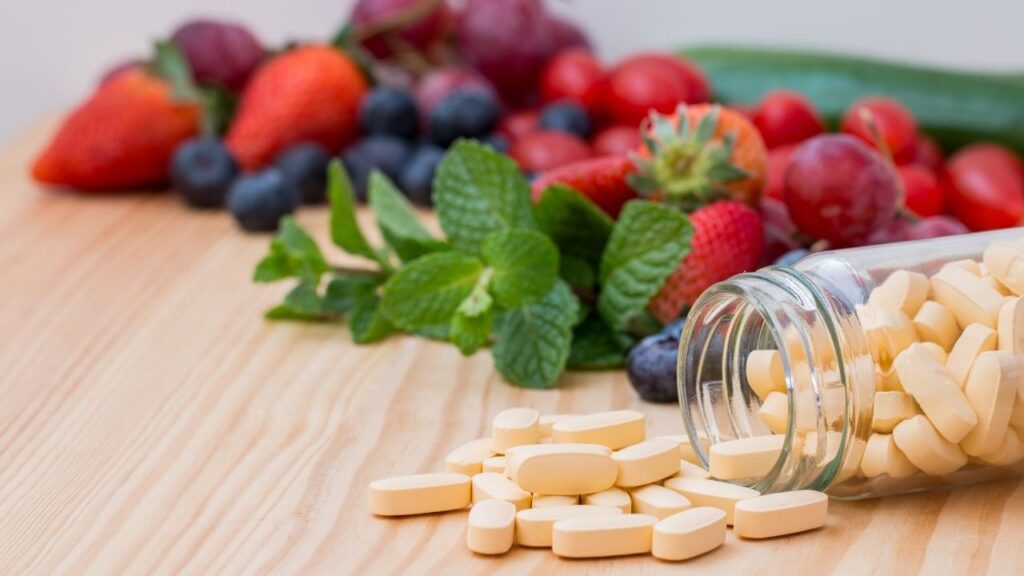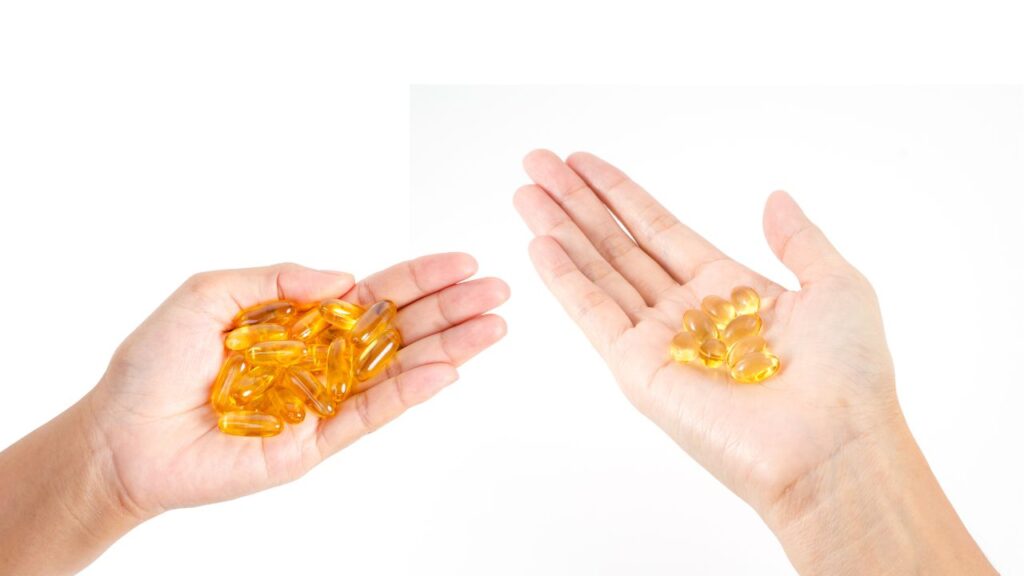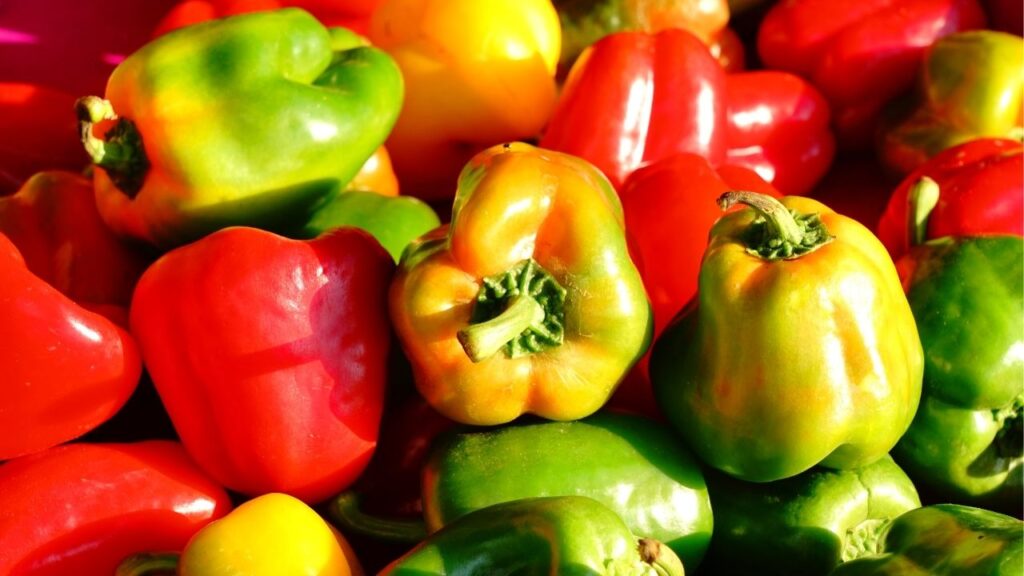Small but mighty, Brussels sprouts contain vitamins and nutrients that can help prevent canine cancer and stop it in its tracks.
Key Takeaways
- Brussels sprouts are good for dogs and are one of the best vegetables to give dogs.
- Avoid giving your dog raw Brussels sprouts – cook them lightly instead.
- You can give Brussels sprouts to puppies, but start with very small amounts to avoid stomach upset.
- Dogs can eat carrots and sprouts.
Tiny Cabbages Packed with Nutrition
Brussels sprouts (Brassica oleracea) are a cruciferous vegetable derived from a species of wild cabbage.1,2 Although native to the Mediterranean, they got their name from the city in Belgium due to their long-standing popularity in the area.2
Brussels sprouts grow as a single, erect plant with 20 to 40 evenly distributed buds, or sprouts, running the length of its stalk.2,3,4,5 They can grow as tall as three feet, with each sprout resembling a one-inch-long cabbage.3,4,5
Brussels sprouts are typically sage-green, but some varieties may also have a red hue.3
And both you and your dog can enjoy this tasty and nutritious vegetable.
Dr. Susan Recker ranks cruciferous veggies, including Brussels sprouts, high on her list of BEST foods for dogs with cancer. Listen now to this fantastic DOG CANCER ANSWERS episode.
Are Brussels Sprouts Good for Dogs?
Like broccoli, Brussels sprouts are packed with good-for-your-dog vitamins and nutrients that can help support their overall health and well-being.1,3,4,6,7 They are also 90% water and only contain 50 to 60 calories per cup, making them an excellent low-calorie, high-reward food to add to your dog’s diet.1
While not inclusive, this list gives you a good idea of what’s found in Brussels sprouts. Let’s focus on some of the heavy hitters first.1,3,4,7
Calcium D-Glucarate
A naturally occurring chemical with several lines of evidence showing its ability to protect against cancer and other diseases.6
Fiber
Just one cup of Brussels sprouts contains 4 grams of fiber.3 Fiber can nourish the cells of the colon, helping to keep them free of developing precancerous changes.7
Glucosinolates and Isothiocyanates
Glucosinolates are phytochemicals and arguably one of the most important things that Brussels sprouts contain.3,8
When enzymes break down glucosinolates, they produce isothiocyanates, potent anti-carcinogens. While the mechanism of action is not fully understood, isothiocyanates directly cause cell death in cancer cells.9
They’re also known to break down and metabolize carcinogens, quickly excreting them from the body before they can do any damage.9
Glucobrassicin is one example of a glucosinolate. It gets broken down into several products, one of the dominant ones being indole-3-carbinol (I3C).4,5
I3C has shown incredible potential in inhibiting leukemia, colon cancer, prostate cancer, and breast cancer by working at the genetic level to prevent inflammatory responses from gearing up in the body at the early stages of cancer.5
Brussels sprouts have greater glucosinolate content than closely related foods such as cabbage, kale, cauliflower, or broccoli.7 As an example, Brussels sprouts have three times more glucosinolates than a head of red or green cabbage.8
Indoles
These stimulate the immune system and make it easier for the body to excrete toxins.6
Sulfur Compounds
D3T is a sulfur compound known to help tissues in the body defend against oxidative and inflammatory stress.10
Sulforaphane is a sulfur compound that helps detoxify the body of cancer-causing chemicals.5,7
Superoxide Dismutase
This helps neutralize superoxide radicals and slow down cell destruction rate.
Vitamin C
Brussels sprouts are loaded with vitamin C – only 1 cup of Brussels sprouts is equivalent to eating two oranges!1
Other Beneficial Compounds
In addition to the above, they also contain:1,3,4,5,7
- Antioxidants
- Beta-carotene
- Coumarins
- Dithiolethiones
- Flavonoids (quercetin, isorhamnetin, kaempferol)
- Folic acid
- Iron
- Phenols
- Phosphorus
- Potassium
- Thiamine
- Vitamins A, B2/Riboflavin, B6, E, and K
That’s quite a list!
Brussels Sprouts and Cancer
The relationship of Brussels sprouts to cancer has been relatively well studied. Of 100 studies involving Brussels sprouts available on PubMed, over 50% involve some facet of their relationship to cancer.4 Unfortunately, rather than dogs, rodents and humans dominate the literature.
Regardless of little work on the effects of Brussels sprouts on canine cancer, the similarities between cancer in humans and cancer in dogs can help shed light on its potential benefits and applications.
Overall, Brussels sprouts have been linked to the prevention of:3,7
- Bladder cancer
- Breast cancer
- Colon cancer
- Lung cancer
- Prostate cancer
- Ovarian cancer
This is thought to be thanks to the high number of glucosinolates.
Brussels sprouts are able to limit the damage caused to DNA, making them useful in preventing all types of cancer.3,7,8 DNA damage is a starting point for many cancers because it can encourage unregulated cell growth. Reducing this risk is paramount in reducing the likelihood that cancer will develop in the first place.
In a study that examined two groups of healthy male volunteers, one group was given 300 grams of cooked Brussels sprouts daily, while the other group consumed a diet that was free of cruciferous vegetables. After three weeks, the group given Brussels sprouts had a 28% reduction in the rate of damage to their DNA.11
Can you use food to help cancer? Yes, says Dr. Judy Morgan in this special episode of DOG CANCER ANSWERS.
Bladder Cancer
The International Journal of Cancer published research showing that a higher intake of Brussels sprouts was associated with a 29% reduced risk of bladder cancer. This was especially true for males, smokers, and older individuals.7 The study suggested this may be due to the high content of isothiocyanates found in Brussels sprouts, which are excreted from the bladder. The high level of antioxidants in the vegetable has also been suggested as beneficial to humans with bladder cancer.6
Colon Cancer
Brussels sprouts can also benefit colon cancer by reducing appetite and promoting healthy regular bowel movements.3 Research with rats in a controlled laboratory setting found that those given water with Brussels sprouts and red cabbage juice had reduced precancerous lesions on the liver and colon.13
Another study testing the impacts of Brussels sprouts consumption with colorectal cancer found that glutathione S-transferase (GST) enzyme activity increased after study subjects consumed Brussels sprouts for one week.14 GST is responsible for detoxification, so its increased activity may help decrease the risk of developing colon cancer.4
Research on colon cancer has also found that Brussels sprouts may protect against heterocyclic amines, carcinogenic compounds that form when meat is grilled or charbroiled.7 Animal studies with precancerous cells in the colon saw a reduction of 41 to 52% when Brussels sprouts were added to their diets, and 85 to 95% of precancerous lesions were reduced in the liver.7
Breast or Mammary Cancer
Sulforaphane, a sulfur-containing compound found in Brussels sprouts that triggers the liver to produce enzymes that break down cancer-causing chemicals and detoxify the body, has been directly connected to inhibiting breast cancer in animal studies.7,8
A study in the Journal of Nutrition also found that sulforaphane interrupts the cell cycle during cell division, or mitosis, making it unable to split from one breast cancer cell into two adequately.15
Prostate Cancer
For males, research on prostate cancer and Brussels sprouts has happened in the lab, animal studies, and in human patients.5 Results overall show that sulforaphane can interfere with prostate cancer at multiple stages of its development by triggering cells to spontaneously die and preventing the creation of new blood vessels that help cancerous tumors grow. These mechanisms ultimately prevent metastasis and stop prostate cancer from spreading.
In one study involving 1,000 men, researchers found a 35% decrease in the risk of getting prostate cancer with 28 servings of cruciferous vegetables.5,7 When an additional three servings of cruciferous vegetables were added, this increased to 44% lower risk.
Glucosinolates Help in a Variety of Cancers
In addition to sulforaphane, the benefits of glucosinolates found in Brussels sprouts have also been well supported through various studies across several cancer types.16
One review paper demonstrated the anticarcinogenic properties of glucosinolates through the results of six cohort studies (studies that follow participants over a longer period, typically years) and 74 case-control studies.17
Results of the cohort studies showed an inverse relationship between the consumption of Brassica vegetables and the risk of lung and stomach cancer. In contrast, the case studies showed a 64% inverse association between consuming Brassica vegetables and the risk of several cancer types.
In short, eating more cruciferous veggies meant less risk of cancer. Results were most consistent for lung, stomach, and colorectal cancer, and less certain for prostate, endometrial, and ovarian cancer.
When to Not Feed Brussels Sprouts to Dogs
You should consult your veterinarian before adding Brussels sprouts to your dog’s diet. This helps ensure that your dog reaps all the benefits gained from anti-cancer foods while not interfering with your dog’s current health or treatment plans and practices.
Underactive Thyroid Dogs
For example, Brussels sprouts aren’t great for dogs with underactive thyroids.6 Chemicals in the sprouts can block iodine uptake into the thyroid gland and contain substances that can cause the thyroid gland to swell.1,3
However, this is not usually a problem unless your dog consumes Brussels sprouts raw in hefty amounts or has a history of iodine deficiency.3
This risk can be mitigated by cooking the Brussels sprouts you feed your dog, watching how much you give them, and supplementing their diet with iodine, which can be found in iodized salt, seafood, and seaweed if your dog is hypothyroid.1
How to Prepare Brussels Sprouts for Dogs
Quality Brussels sprouts are typically firm, compact, appear fresh, and are a bright green color.1,4,16
Fresh Is Best
Avoid sprouts with wilted or yellowing leaves, leaves that have been eaten by worms or insects, and any that may have a dirty or “smudgy” appearance. Aged Brussels spouts could have aphids on the inner surfaces of their leaves, and may overall be unfit to feed your dog.1,3
Clean Them Up
When preparing Brussels sprouts for your dog to eat, first remove any stems with yellow or discolored leaves.3
Next, wash the Brussels sprouts under cold running water or soak them in a bowl with water to remove insects and any dirt that could be hiding in the inner leaves.3 It’s typically best to purchase organic Brussels sprouts, but if that’s not possible, you should soak them in water with a mild solution of additive-free soap, then wash and rinse them.3
Cut Them Up
Cutting the sprouts into quarters (from stem to tip) and letting them sit for five minutes before cooking helps to make them taste less sulfuric.
Cooking Methods
You can boil, steam, microwave, or fry Brussels sprouts,1,3,4,5 but steaming is the best method.
Brussels are typically cooked whole but can be cut up if desired. Cutting an “X” in the bottom of the stem before cooking is helpful, as this will allow heat to permeate through the vegetable’s leaves, leading to a better texture.
Steaming
Steaming is the best method to cook Brussels sprouts and maintain their powerful nutrients.3 To steam, fill the bottom of a steamer pot with two inches of water, wait for a rapid boil, and lightly steam anywhere from 5 to 14 minutes.3,5
Boiling
If boiling, allow Brussels sprouts to cook for 5 to 15 minutes. Fresh Brussels sprouts take longer to cook than frozen ones because frozen Brussels sprouts are typically “pre-cooked” with boiling water or steam before packaging.
Though easy, boiling is known to cause a large loss of glucosinolates and, ultimately, isothiocyanates.5 This means that many scientifically supported components that make Brussels sprouts beneficial to dogs with cancer are lost in the process. However, one study that boiled Brussels sprout and red cabbage together for 10 minutes in 100 milliliters of water observed no loss in their chemoprotective effects.13
Frying or Sauteing
Flash-frying Brussels sprouts has made this vegetable a restaurant staple for years due to its delicious crunchy fried state. However, that method is not a good choice for your dog with cancer, as it tends to char the vegetables, which can create carcinogens.
We recommend steaming or boiling to get your dog all the benefits of Brussels without the added risk of char that comes with browning methods.
Avoid Overcooking!
Be mindful of cooking times, as overcooked Brussels sprouts don’t taste good, and your dog that’s a picky eater or suffering from a lack of appetite due to their cancer or cancer treatment will probably agree.
Overcooked Brussels sprouts have a strong sulfur smell and won’t incur many benefits due to the loss of nutritional components.7 Alternatively, perfectly cooked Brussels sprouts will have a crisp, dense texture with a semi-sweet, bright, and fresh “green” taste.7
How Much Brussels Sprouts Can Dogs Eat?
Start by giving your dog a small amount of cooked Brussels sprouts, such as half to one sprout. If your dog tolerates that well and has no ill effects after 24 hours, you can continue feeding them and gradually increase the amount depending on your dog’s size.18
You can work up to as many as three Brussels sprouts in a serving for large dogs.18
Signs that you gave your dog too many too soon include stomach upset and increased flatulence.18
Storing Brussels Sprouts
Raw, unwashed, and untrimmed Brussels sprouts can be kept for three to four days in a perforated plastic bag in your refrigerator’s vegetable compartment3 or up to ten days in a plastic bag.7
Cooked Brussels sprouts can be kept for up to three days in the refrigerator.3
Frozen Brussels sprouts can be stored for as long as four to six weeks and even up to two months, depending on the temperature and humidity of your freezer.1,2 Blanching them first for three to five minutes will extend that life even further – up to one year.3,4
Sourcing Brussels Sprouts for Dogs
Brussels sprouts are available fresh or frozen. Over 95% are frozen, while the remaining 5% are sold fresh.1
They’re grown throughout Europe and the United States, with the bulk produced in California.7 Farmers walk through Brussels sprouts fields and pick the mature sprouts from the lower stem of the plant first and subsequently collect the sprouts on the higher end of the plant as they develop.1
Buying organic has numerous benefits, but if that’s not possible, you’ll want to take the extra step of soaking non-organic certified Brussels sprouts in water with a mild solution of additive-free soap followed by washing and rinsing.3
Veterinary nutritionist Dr. Lindsey Bullen explains how she approaches food when it comes to cancer in dogs in this episode of DOG CANCER ANSWERS.
- Ensminger ME, Ensminger AH. Foods & Nutrition Encyclopedia. CRC Press; 1993.
- Wyman, D. Wyman’s Gardening Encyclopedia. Simon and Schuster; 1986.
- Murray MT, Pizzorno JE, Pizzorno L. The Encyclopedia of Healing Foods. /mon and Schuster; 2005.
- Narayana CK. Phytochemicals in Vegetables and their Therapeutic Properties. CRC Press; 2021.
- Yeager S. The Doctor’s Book of Food Remedies. Rodale; 2008.
- Balch PA. Prescription for Nutritional Healing: A Practical A-to-Z Reference to Drug-Free Remedies using Vitamins, Minerals, & Food Supplements. Penguin; 2006.
- Sharma MM. 52 Simple Ways to Prevent, Control and Turn Off Cancer. Chand Publishing; 2012.
- Yost D. The Anti-Cancer Food and Supplement Guide: An A-TO-Z Guide to the Best Natural Foods and Supplements to Help Prevent and Treat Cancer. St. Martin’s Paperbacks; 2010.
- Henklewska M, Pawlak A, Li RF, Yi J, Zbyryt I, Obmińska-Mrukowicz, B. Benzyl isothiocyanate, a vegetable-derived compound, induces apoptosis via ROS accumulation and DNA damage in canine lymphoma and leukemia cells. Int J Mol Sci 2021;22(21):11772.
- Li RY, Jia Z, Zhu H. 3H-1,2-Dithiole-3-Thione as a potentially novel therapeutic compound for sepsis intervention. React Oxyg Species (Apex) 2019;8(22);202-212.
- Verhagen H, Poulsen HE, Loft S, van Poppel G, Willems MI, van Bladeren PJ. Reduction of oxidative DNA-damaga in humans by Brussels sprouts. Carcinogenesis 1995;16(4):969.970.
- Soundararajan P, Kim JS. Anti-carcinogenic glucosinolates in cruciferous vegetables and their antagonistic effects on prevention of cancers. Molecules 2018;23(11):2983.
- Kassie F, Uhl M, Rabot S, et al. Chemoprevention of 2-amino-3-mehylimidazo[4,5-f]quinoline (IQ) – inducted colonic and hepatic preneoplastic lesions in the F344 rat by cruciferous vegetables administered simultaneously with the carcinogen. Carcinogenesis 2003;24(2):255-261.
- Nijhoff WA, Grubben MJAL, Nagengast FM, Jansen JBM, Verhagen H, van Poppel G, Peters WHM. Effects of consumption of Brussels sprouts on intestinal and lymphocytic glutathione S-transferase in humans. Carcinogenesis 1995;16(9):2125-2128.
- Jackson SJT, Singletary KW. Sulforaphane inhibits human MCF-7 mammary cancer cell mitotic progression and tubulin polymerization. J Nutr 2004;134(9):2229-2236.
- Zappia V, Goldbohm A, Verhagen H, Verhoeven D, van Poppel G. Advances in Nutrition and Cancer. Springer Science & Business Media; 2013.
- van Poppel G, Verhoeven DTH, Verhagen H, Goldbohm RA. Brassica Vegetables and Cancer Prevention. In: Zappia, V., Della Ragione, F., Barbarisi, A., Russo, G.L., Iacovo, R.D. (eds) Advances in Nutrition and Cancer 2. Advances in Experimental Medicine and Biology. Vol 472. Springer;1999 Accessed December 29, 2022. https://doi.org/10.1007/978-1-4757-3230-6_14
- Jess. Can dogs eat Brussels sprouts? Vet Explains Pets. Published 27 September 2021. Accessed April 6, 2023. https://vetexplainspets.com/can-dogs-eat-brussels-sprouts/
Topics
Did You Find This Helpful? Share It with Your Pack!
Use the buttons to share what you learned on social media, download a PDF, print this out, or email it to your veterinarian.
